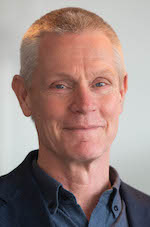Hugo Quené becomes track leader within the UU Open Science Programme
The Open Science Programme was established by Utrecht University to stimulate and facilitate researchers to put open science into practice. Hugo Quené, director of the Centre for Digital Humanities, will lead the FAIR data & software track within this programme.
Utrecht University wants to promote open science as part of its promise to make science more open and even more reliable, efficient and relevant to society. In his new role within this programme, Hugo Quené, professor of Quantitative Methods of Empirical Research in the Humanities, has a number of things high on the agenda. One of his points of attention is to provide good and adequate support for researchers and lecturers who want their data or software to match the FAIR principles: findable, accessible, interoperable and reusable. The FAIR method takes time and effort, and this should be matched by appropriate recognition and rewards. In addition, Quené wants more attention to be paid to the great diversity between disciplines, in the sources and data that are used, and in how these are analysed.

Quené himself has been working for some time from the conviction that data should be shared openly. In a major research project in 2010-2016, he and dr. Rosemary Orr collected over 300 hours of speech in more than 1000 interviews and made these data available FAIRly via a CLARIN repository. In recent years, Quené was a member of the Faculty Open Science Team (FOST) of the Humanities, as a fellow for FAIR data & software.
About the Open Science Programme
The UU Open Science Programme is centered around the five tracks Open access, FAIR data & software, Public engagement, Recognition & rewards and Open education. The programme is directed by an Open Science Platform which includes members of the entire Utrecht University research community.

